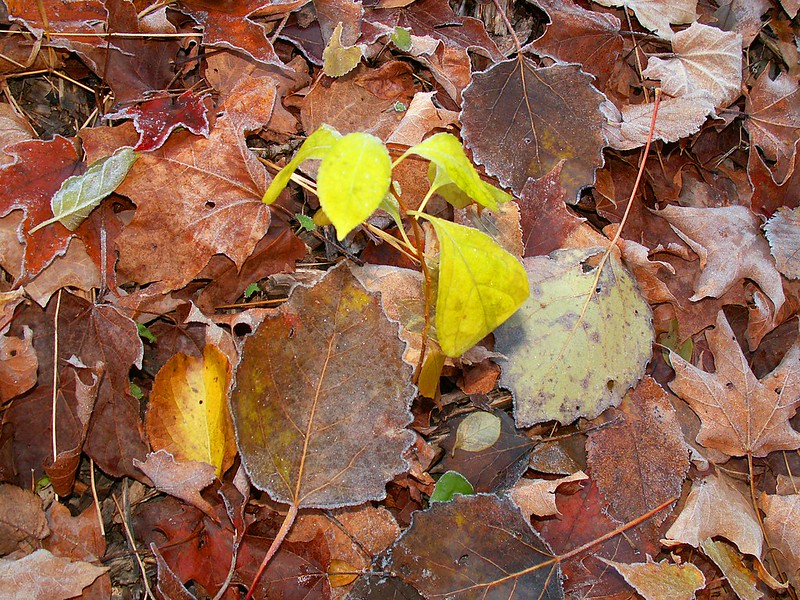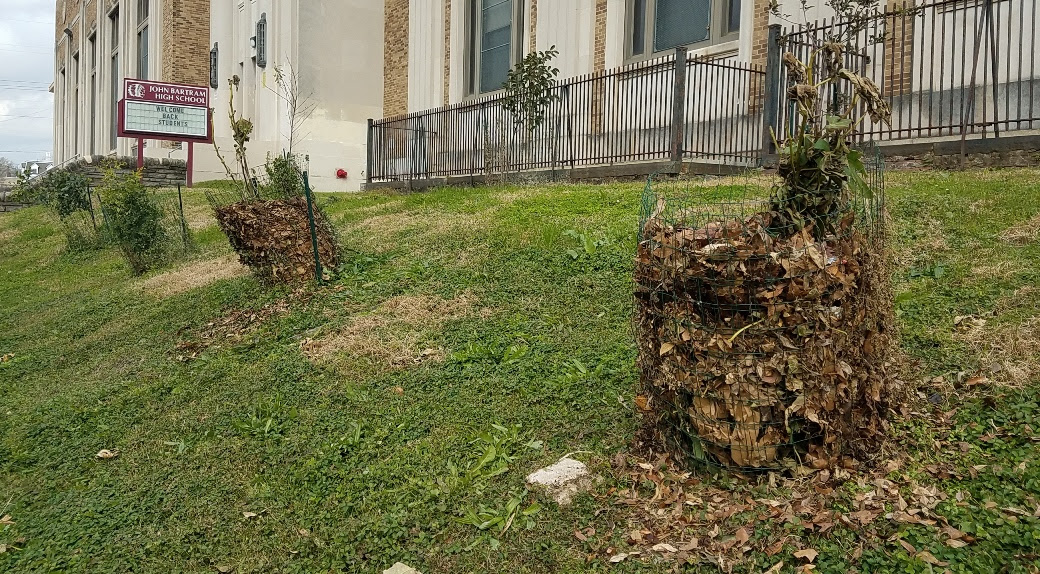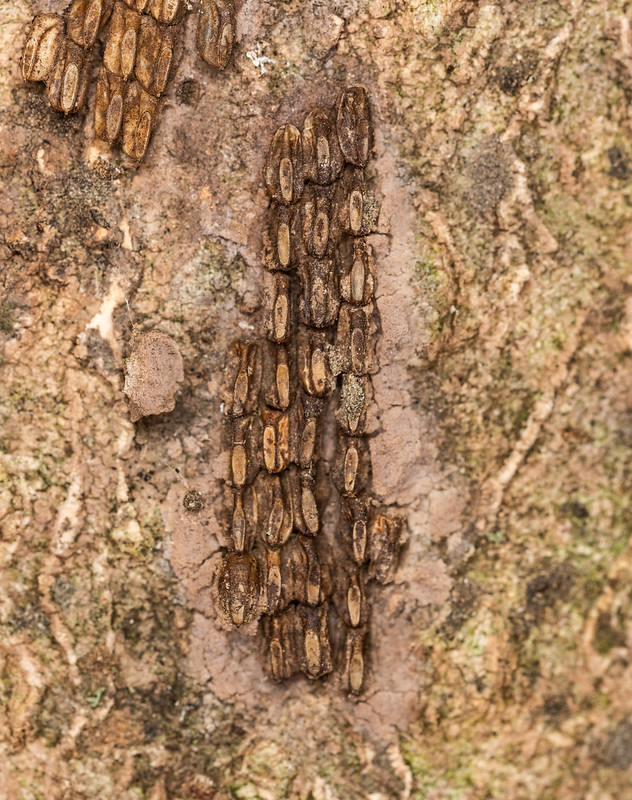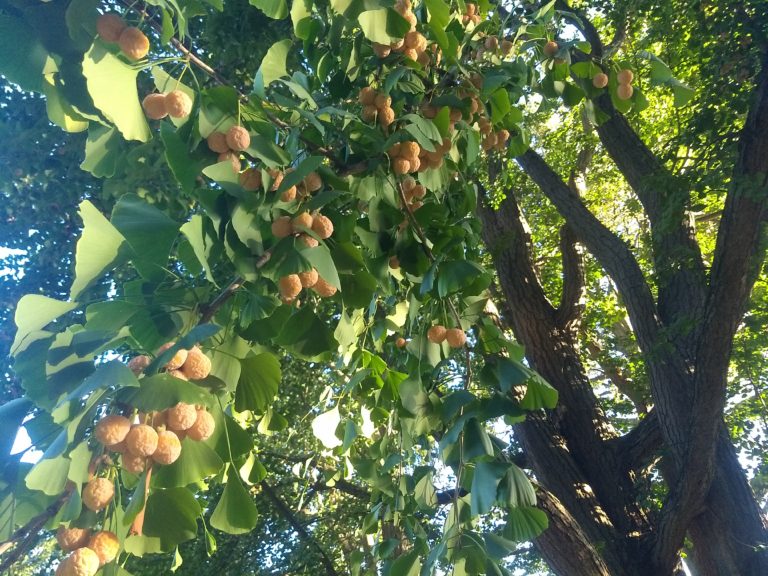The busy orchard season has finally come to a close and many orchard plants have already gone dormant for the winter. That said, there are still a few orchard tasks to consider in December.
Check out POP’s Monthly Orchard Task List and print a copy for easy reference. Here is some more detail on some of the key tasks for December:
Fall Leaf Management in Orchards
As orchard plants drop leaves, there are a few key management practices to keep in mind. Fallen leaves can potentially be a source of disease spores for the next season, but they can also be a precious resource for soil improvement! For these reasons, it is best to either collect fallen leaves or to help them break down in place.
Here are some options for leaf management:
1. Collect fallen leaves:
a. For use in composting (leaves are the ideal ‘brown’ or carbon-rich component in most compost systems).
b. For use in winter protection of tender plants (we often surround figs with wire fencing and then stuff with fall leaves as insulation).

2. Help fall leaves break down in place:
a. Spread 1-2 inches of compost in the orchard after the majority of leaves have fallen.
b. Spray compost tea in the orchard after the majority of leaves have fallen.
Winter Protection for Figs and Pomegranates
Cold-sensitive orchard plants like figs and pomegranates benefit from some winter protection measures. These plants are able to take freezing temperatures without damage, but temperatures below 20 F can cause injury and can arrive at any point this time of year!
One of the simplest techniques for winter protection of young figs is to tie all the branches as close together as possible, surround the tree with some fencing, and fill the fencing with fall leaves, straw, or other available materials to provide insulation. There are plenty of fall leaves to be had right now– check your neighborhood on trash day if you don’t have enough on site! If available, a tarp can also be placed on top. It is okay if some of the branches stick out. If we have a mild winter, those unprotected branches will be fine; if we get a harsh one, you’ll simply cut them off in the spring after growth begins.

Another easy method for protection is to tie the branches together and surround the whole thing with an old carpet. Layers of burlap, row fabric, or even old bedsheets can also be used, although make sure to attach them securely so they don’t blow away. For older, bigger figs, you may need to wrap individual trunks/branches with this kind of insulation to protect them.
See here for our full article on growing figs in cold climates:
https://www.phillyorchards.org/2009/10/17/fresh-figs-for-cold-climates/
Emergency Pruning
At this point in the season, it is best to wait until all plants are fully dormant to begin winter pruning. In our climate, January through March is the best time frame to complete winter pruning of fruit trees, berry bushes, and vines. Look out for more info in the new year!
Pest and Disease Monitoring & Identification
Many orchard pests and diseases have gone dormant at this point in the season. This is a good time to remove any pest traps or lures that were deployed this year. And it’s never too early to start removing overwintering Spotted Lanternfly eggs!

(Photo Credit: Stephen Ausmus)
December Harvests!
Yes, there are still some harvests to be had in December! Look out for ripening persimmons, gingkos, medlars, and hawthorns. Record your harvests using our handy POP Harvest Tracking Sheet.

Wishing all a happy holiday season and some much needed rest and recovery!
SUPPORT US! If you found this entry useful, informative, or inspiring, please consider a donation of any size to help POP in planting and supporting community orchards in Philadelphia: phillyorchards.org/donate.